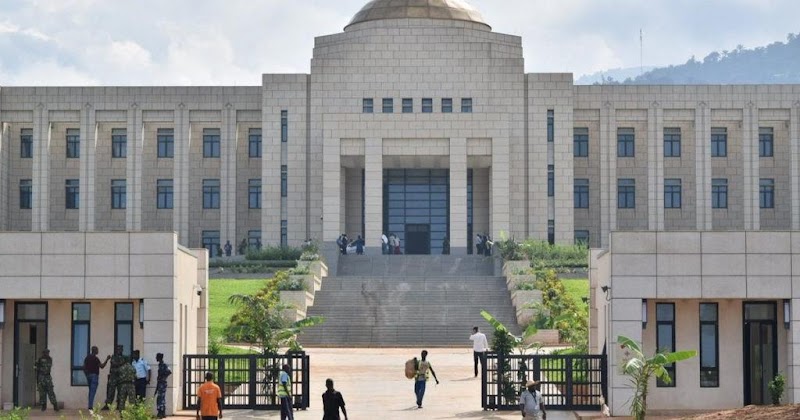Michel Micombero was the first President of Burundi, serving from 1966 to 1976. He was born in 1940 in Rutovu, Burundi, and belonged to the Tutsi ethnic group.
Micombero’s early life was marked by political turmoil and ethnic tensions in Burundi. He attended military school in Belgium and rose through the ranks of the Burundian army, eventually becoming Chief of Staff in 1965. In 1966, he led a military coup that overthrew the monarchy and established a republic, with himself as President.
During his presidency, Micombero’s policies were heavily influenced by his military background and his desire to maintain Tutsi dominance in Burundian society. He faced significant opposition from Hutu groups, who felt marginalized and discriminated against under his rule. His government also faced challenges related to economic instability and ethnic tensions, which eventually led to a military coup in 1976 that removed him from power.
Micombero’s legacy is complex and controversial. He is remembered for his role in establishing a republic in Burundi and for his efforts to modernize the country’s infrastructure and education system. However, his presidency was also marked by human rights abuses, ethnic discrimination, and political instability. He died in exile in Somalia in 1983.
- Born: 1940 in Rutovu, Burundi
- Ethnicity: Tutsi
- Education: Military school in Belgium
- Career: Burundian army, Chief of Staff (1965)
- Political affiliation: Military
- Term as President: 1966-1976
- Achievements: Established a republic in Burundi, modernized infrastructure and education
- Controversies: Human rights abuses, ethnic discrimination, political instability
- Legacy: Complex and controversial figure, remembered for contributions to Burundi’s development but also criticized for authoritarian rule
- Death: 1983 in exile in Somalia
Emblem of Burundi
To enrich your insights into presidential figures worldwide, also explore some prominent first presidents from other countries, such as Burkina Faso, Bulgaria and Brunei. Delving into the leadership journeys of these figures can offer valuable perspectives on their historical significance and pivotal roles in shaping global politics.
The official residence and symbol of the Burundi President
10 Iconic Presidents Who Shaped Burundi’s History

Here are 10 of the most popular presidents from Burundi:
- Pierre Nkurunziza
- Melchior Ndadaye
- Michel Micombero
- Sylvestre Ntibantunganya
- Pierre Buyoya
- Domitien Ndayizeye
- Pascal-Firmin Ndimira
- Jean-Baptiste Bagaza
- Micah Paris Ruvakuki
- Térence Sinunguruza
Pierre Nkurunziza served as the President of Burundi from 2005 until his death in 2020. He was one of the longest-serving presidents in the country’s history. Nkurunziza’s presidency was marked by political turmoil, including a controversial third term, which led to widespread protests and an attempted coup in 2015. Despite the criticism and unrest, he maintained a strong support base among certain segments of the population.
Melchior Ndadaye was the first democratically elected president of Burundi. He served from 1993 until his assassination later that year. Ndadaye’s election marked a significant turning point in Burundi’s history, as he was a member of the Hutu ethnic group, which had historically been marginalized in the country’s politics. His presidency was cut short by ethnic violence, but he remains a popular figure for his role in promoting democracy and inclusion.
Michel Micombero was the first president of Burundi. He came to power after a military coup in 1966 and ruled until 1976. Micombero’s presidency was a time of political instability and authoritarian rule. Despite his controversial legacy, he is still recognized as one of the influential figures in the country’s early history.
Sylvestre Ntibantunganya served as the President of Burundi from 1994 to 1996. He took office following the assassination of Melchior Ndadaye and played a key role in the country’s transition to democracy. Ntibantunganya’s presidency was short-lived, but he is remembered for his efforts to promote reconciliation and stabilize the nation.
Pierre Buyoya served as the President of Burundi on two separate occasions: from 1987 to 1993 and from 1996 to 2003. His presidency was marked by several significant events, including the introduction of multiparty democracy in 1992 and the signing of the Arusha Accords in 2000, which aimed to end the country’s civil war. Despite facing criticism and controversy, Buyoya is regarded as an influential leader in Burundi’s recent history.
Domitien Ndayizeye served as the President of Burundi from 2003 to 2005. He took office following the resignation of Pierre Buyoya and played a role in the implementation of the Arusha Accords. Ndayizeye’s presidency was a delicate period for Burundi, as the country was still recovering from years of civil war. He is praised for his efforts to consolidate peace and rebuild the nation.
Pascal-Firmin Ndimira was the President of Burundi for a brief period in 1993. He took office following the assassination of Melchior Ndadaye and served as an interim president until his own assassination a few months later. Ndimira’s presidency was marked by ethnic violence and political instability. Despite his short tenure, he is remembered as a symbol of Burundi’s struggle for democracy.
Jean-Baptiste Bagaza was the President of Burundi from 1976 to 1987. His presidency was characterized by a strong centralized government and authoritarian rule. Bagaza implemented several economic and political reforms during his time in office but faced criticism for human rights abuses. Despite the controversy, he remains a prominent figure in Burundi’s history.
Micah Paris Ruvakuki served as the President of Burundi from 1964 to 1965. He led a military coup that overthrew the government and established a military regime. Ruvakuki’s presidency was fraught with political tensions and instability. Although his tenure was short-lived, he remains a notable figure in Burundi’s history.
Térence Sinunguruza served as the President of Burundi from 1987 to 1993. He took office after the resignation of Jean-Baptiste Bagaza and played a role in the country’s transition to multiparty democracy. Sinunguruza’s presidency was marked by political reforms and attempts to promote reconciliation

